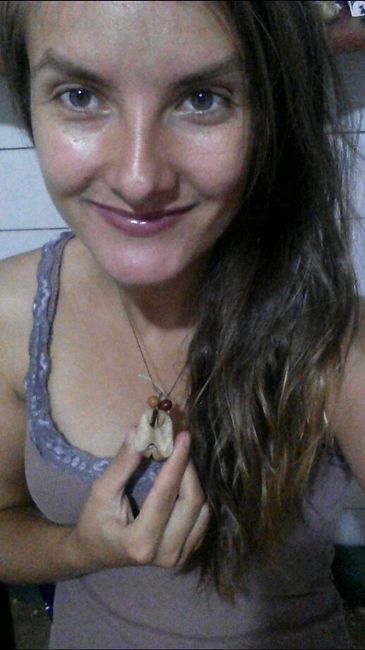
peru-eine-geschichte-von-angeleinten-huhnern-geschminkten-mannern-and-gegessenen-gurteltieren
vakantio.de/peru-eine-geschichte-von-angeleinten-huhnern-geschminkten-mannern-and-gegessenen-gurteltieren
The values of Florida Baja
יצא לאור: 04.04.2018
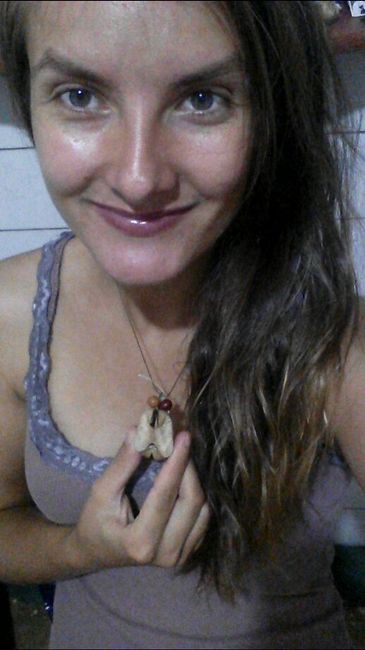
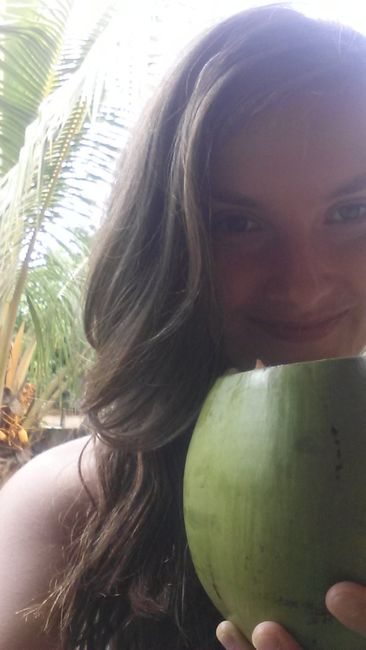
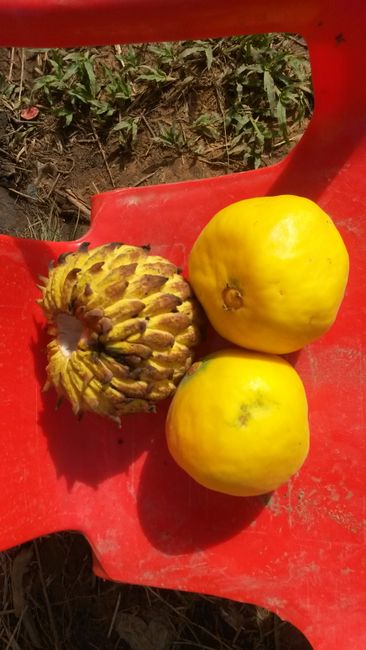
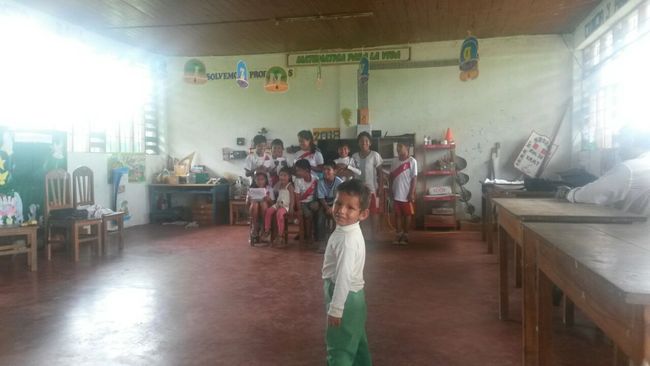
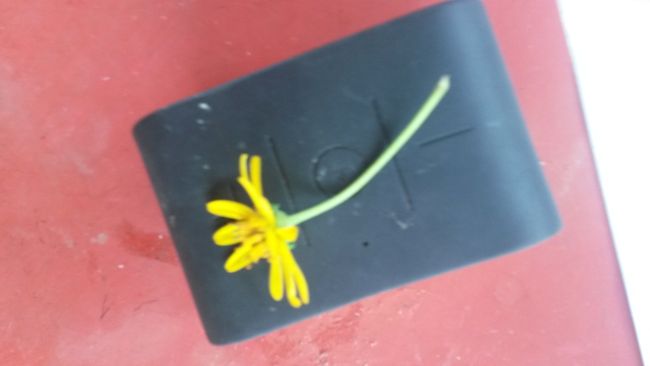
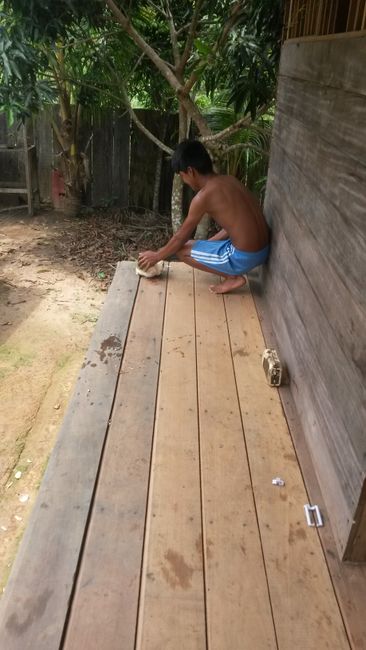
הירשם לעדכונים
1. Respect:
The thing about respect is somehow weird. On one hand, people have very little respect, but on the other hand, they have a lot. Examples where they have a lot of respect:
- When the mayor of the village comes to visit my host family to talk about the work in the field (he is a normal village member, elected by the others, and like many here, a farmer), the TV is immediately switched to the news, no one says anything except the parents when they are explicitly addressed, and for some reason, no one eats. Maybe the latter is because they are afraid he won't like it or because they don't have enough food left.
- When someone from the village dies, they go to the family, give them something to eat, express their condolences. The day before the funeral, they gather in front of the coffin, light candles, drink soft drinks, eat cookies, and smoke a cigarette so that the soul has good dreams.
- In school: the children always have clean clothes, are groomed, and wear a uniform. If they don't have any of these things, they are ashamed to come. I experienced this myself. One day, a child didn't come to the cultural center because they didn't have clean clothes. After Johanna and I said it wasn't a problem, it was very happy. However, children can be quite mean. There have been cases where children have bullied others because they come to the cultural center with the same clothes as the day before or with torn clothes. I tried to forbid this by saying, 'It doesn't matter what you wear when you come. The important thing is that you come to learn something because in life, what you have in your mind is what counts, not what you wear.'
- When my host family goes to the big city of Puerto Maldonado or picks up Angel's clothes to wash, they dress in nice clean clothes, comb their hair, and dampen their heads with water so that their hair stays neat.
2. Hygiene: you wouldn't believe it, but it's very important to most people here, especially my host family. What does it mean? First of all, you have to wash your clothes every day because there are all sorts of bugs living in the tall grass, and you would bring them into the house if you don't. Also, clothes that smell of sweat attract mosquitos, and then everyone suffers. That's why you also have to shower every day. Sometimes, you even use clothing soap to drive away any insects on the skin. Rubber boots are also regularly washed to avoid getting foot fungus. My host father is always very meticulous about it and washes himself with them. :D. You also regularly cut your finger and toe nails with a razor blade. Except my host brother. He likes long fingernails. He lets them grow until they break and then suffers a lot from the loss.
I also noticed that a taxi driver had very long fingernails.
3. You always take your shoes off when entering a house. There is a school in the village called 'Cruze' where the children take off their shoes and sweep the floor before entering. My host mother proudly told me that the socks are very clean. She wanted to teach me to take off my shoes in the bathroom outside because it's always muddy. The problem is that I always wear socks into which I stuff my pants so that I don't get bitten by mosquitos and no animals crawl into my pants, making them extremely dirty and wet because no one follows this rule anyway.
4. Charity: people still care about others here. My host mother, for example, takes care of an old man with cancer who has no family. She changes his diapers, buys groceries for him, cooks for him. She lends money to many people, invites Rutman to eat with them, and shares whatever they have. My host father likes to give alcohol. It acts like a magnet since many don't have enough money to spend on alcohol and get drunk at the expense of others. My host family also lets others sleep at their place if someone is drunk or if there isn't enough space in the house because visitors are there and there aren't enough beds available.
5. Love for the family: my host family mostly takes care of each other. My host father donated blood to my host grandma and went with my host mother to 'Tingo Maria', which is far away. They were away for a week in total and plan to take her in when she is stable again. My host mother said, 'Even if my mom doesn't have long to live, at least I can still see her in her last days.' She talks to her a lot on the phone and also with her daughter, who is living in Arequipa for 3 months to take an entrance exam for medical school. My host parents also buy their children all kinds of things to make them happy and help them improve. In the case of my host brothers, it's only soccer stuff. In the case of my host sister, it's books and the opportunity for a good education. The thing is... physical love in the form of hugs and words doesn't really exist. And that's a shame. When you see that in others, your heart just blooms. I could cry every time.
5. Getting up early and working quickly: capitalist values have already established themselves here as well. But I think that's mostly due to the heat. Of course, you flee from it when you work by getting up early. Because when it rains, everything sleeps the whole day and everything somehow works slower. But it also makes you feel really sluggish, and it actually gets quite cold comparatively. It starts with a draft, then the temperature drops rapidly, and then it rains. My children once said, 'If no parrot crosses the sky, then it will rain.' I think they're actually right. You never see them when it rains, but it's cute how they establish their own rules to determine natural events ♡.
Back to the topic: I observed how the children here are constantly shouted at to do things faster. Actually, you hear almost constantly when you pass by a house, 'rápido!'. What's so bad about that? It creates children who are very nervous and, above all, impatient. And that's incredibly bad. They want to do everything very well to please everyone, but they're not allowed to because it's more important for the parents that they do it quickly. This always raises two questions for me: 1. How are they supposed to learn anything like this? 2. Why do people stress themselves out like this even in the rainforest, far away from civilization? The result of their impatience are completely intimidated children who think they're doing everything wrong, give up quickly when something doesn't work, and are afraid of failing. Unfortunately, I had to observe how a 10-year-old child didn't finish a simple puzzle for 5-year-olds because he thought it was too difficult and he couldn't do it quickly. So, he just walked away. With patience, he would have surely managed it, and he would have been proud afterwards and would have been faster next time for sure. After all, practice makes perfect. And if you start living like this, how can you become anything?
6. Hatred towards the rich and fear of wealth:
My boss told me that people hate my boss because he is the only one in the village who has money. This hatred was also expressed in the speeches of my host mother, who said with great contempt that the family can afford to buy an incredible amount of alcohol or when she wanted things to be less complicated in the cultural center and said disdainfully, 'Your boss has money. He could invest in it too.' She also often portrayed him as lazy, even though she actually had no idea how much he worked. Of course, you can't compare his work and the work with the farmers, who live in wooden huts. The people who worked for Angel's father in a wood factory got 50 soles a day. Johanna and Kike got 70 dollars or 210 soles for a tour with ONE tourist (minimum 3 people were planned for the tours) soles. That's, of course, a stark contrast, but people don't see or don't want to see that this family is working hard for the community's growth. With the cultural center, they not only want to provide children with educational opportunities but also show women how to make jute bags sewn with traditional patterns. They plan to sell these bags in Peru and in Europe (they will give me 30 of them in Arequipa to sell for 15 euros each in Germany) to make money for the community and sustain themselves. My host father also told me that they plan to register the community so that it can be found quickly on the internet and make it beautiful so that more tourists come. This way, the money should stay in the community, and Florida Baja should grow because of it. This principle of money is already deeply rooted in the community: the money mostly stays where it is since most farmers sell their goods to the people in the village. That's why my host mother's phone almost exploded every day from all the calls, and I constantly heard, 'Yuka? You want yuka? Camilo or Ali! Get the yuka!' Then they drove to the field 20 meters away, pulled out the trees, cut off the yuka (it's a root like a potato), and collected it in a rice sack. Either they took the sack to the buyer with the motorcycle (which could also be a person from another village) or the person came themselves. Actually, the buyers were only allowed to call until 5 p.m. because it was still light outside, but they made an exception for some (usually 2 family members) and even went out at night at 9 p.m.
My host parents were very connected to everyone in the village. The common denominator among all of them was poverty. They constantly talked about not having any money. And when I complained about working too much and that volunteers who work voluntarily shouldn't work so much, my host mother's eyes sparkled very strongly. She said, 'I thought you were getting paid for it like the other volunteers.' Then she constantly made comments about how unfair it was how much I work and that something should be done about it. Since that day, we understood each other more.
However, this common denominator also had the consequence that those who had more, like my boss, were discriminated against. So, my host mother told me when she flew to Lima to donate blood to her sick mother, 'Ksenia, don't tell anyone that I'm traveling to Lima! I don't want anyone in the village to find out!'
But the poverty issue was also a double-edged sword. They still bought luxury items like smartphones or huge music boxes that they turned up all the way. My host parents were also ashamed when it came to their food, especially when the mayor came, because he constantly ate animals from the rainforest and they couldn't afford it. That's why they constantly put away the food. My host mother once said, 'I don't want him to think we're poor when he sees our food.'
הירשם לעדכונים
תשובה
